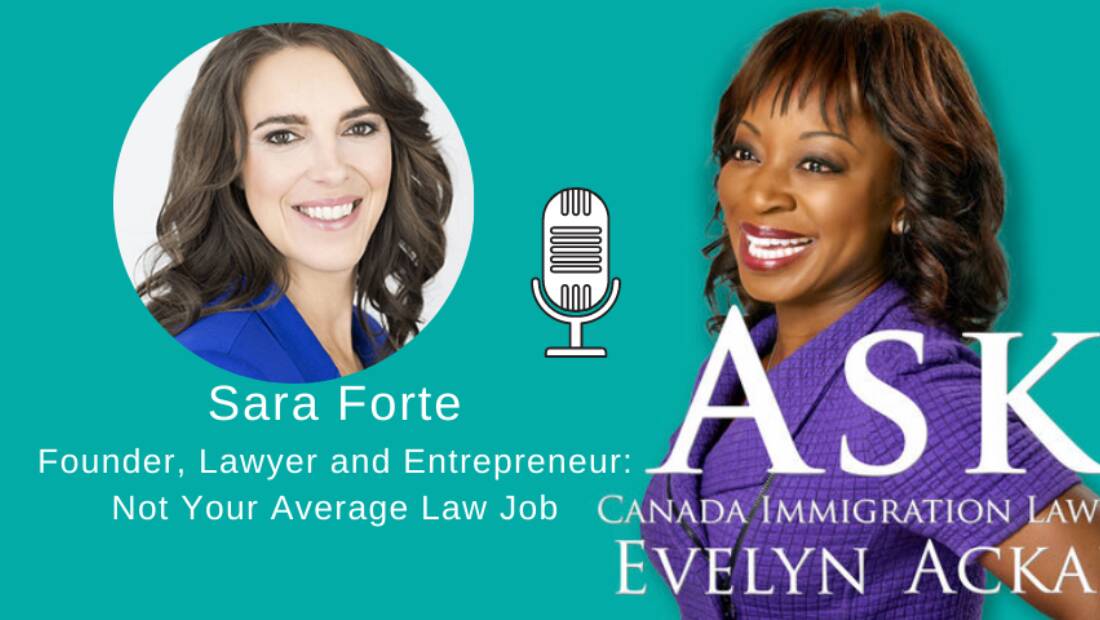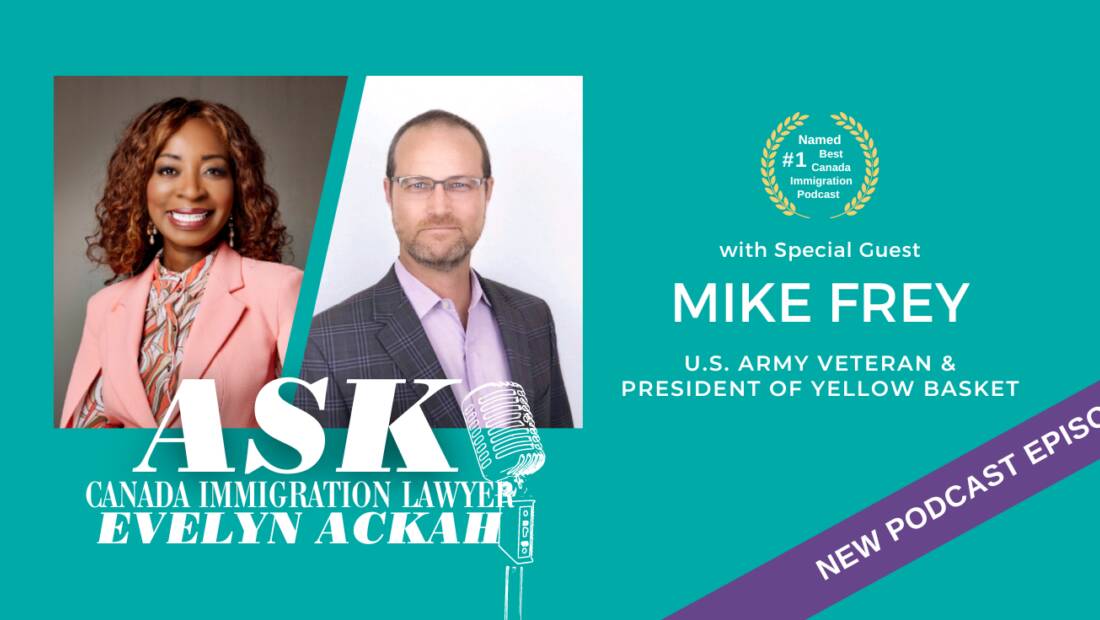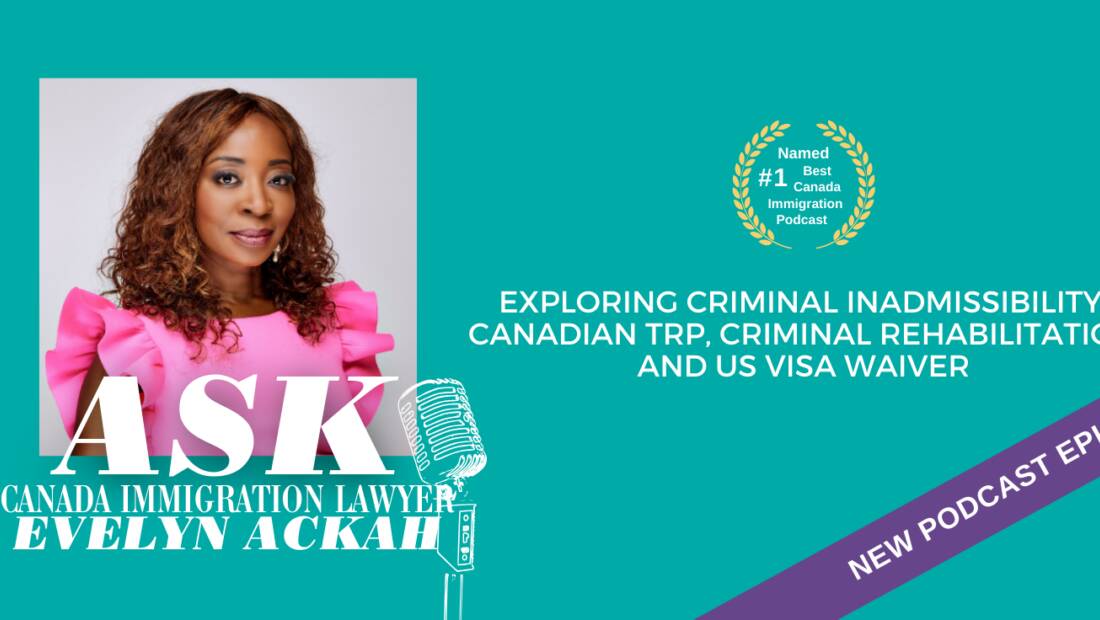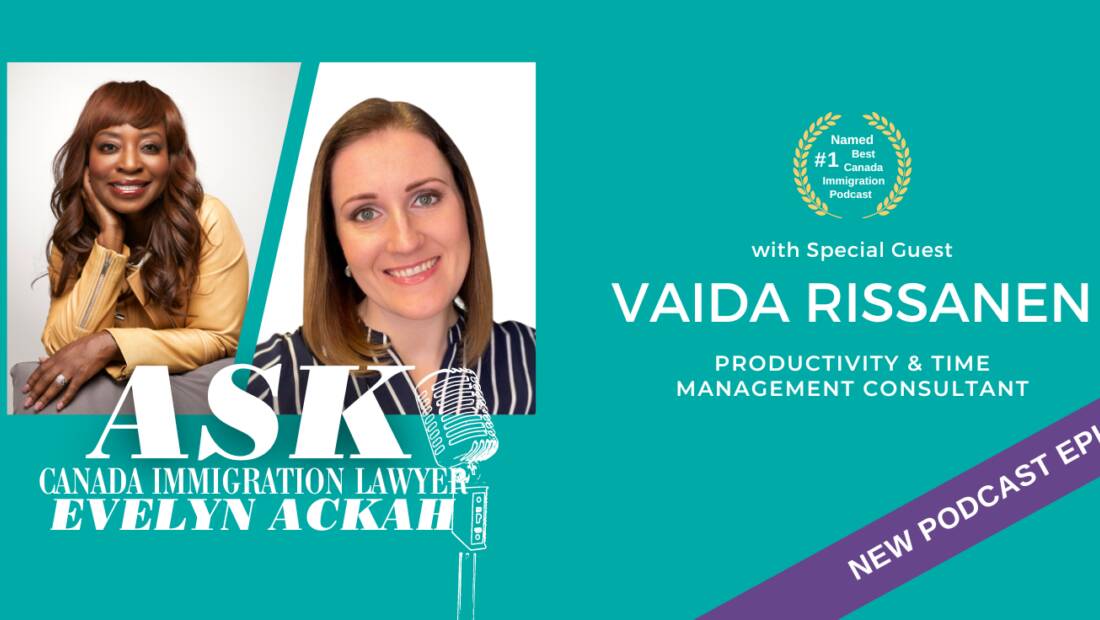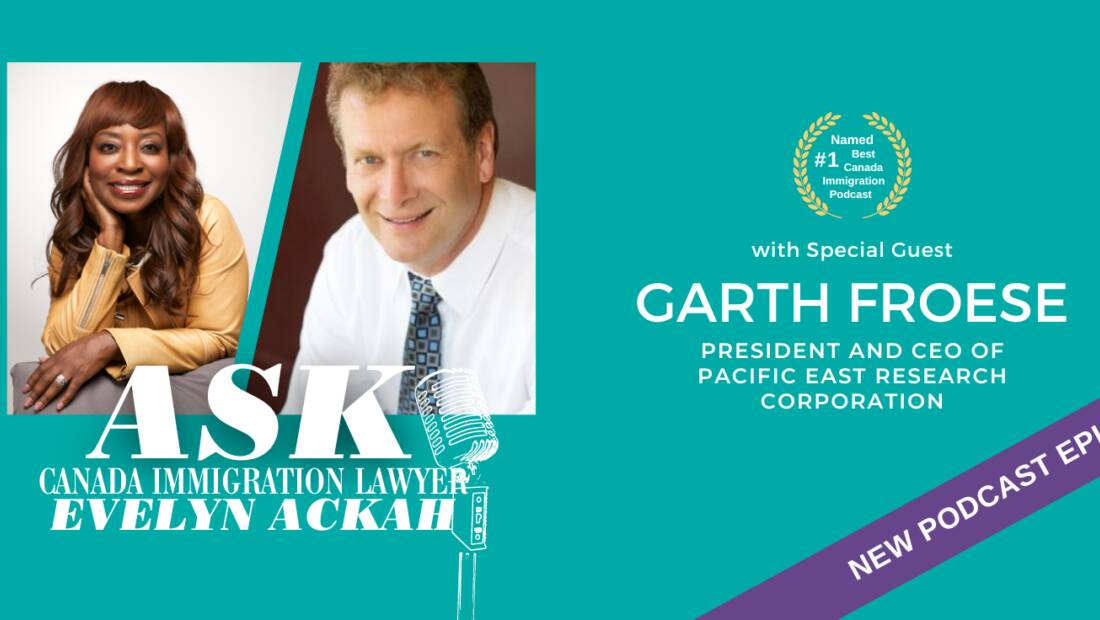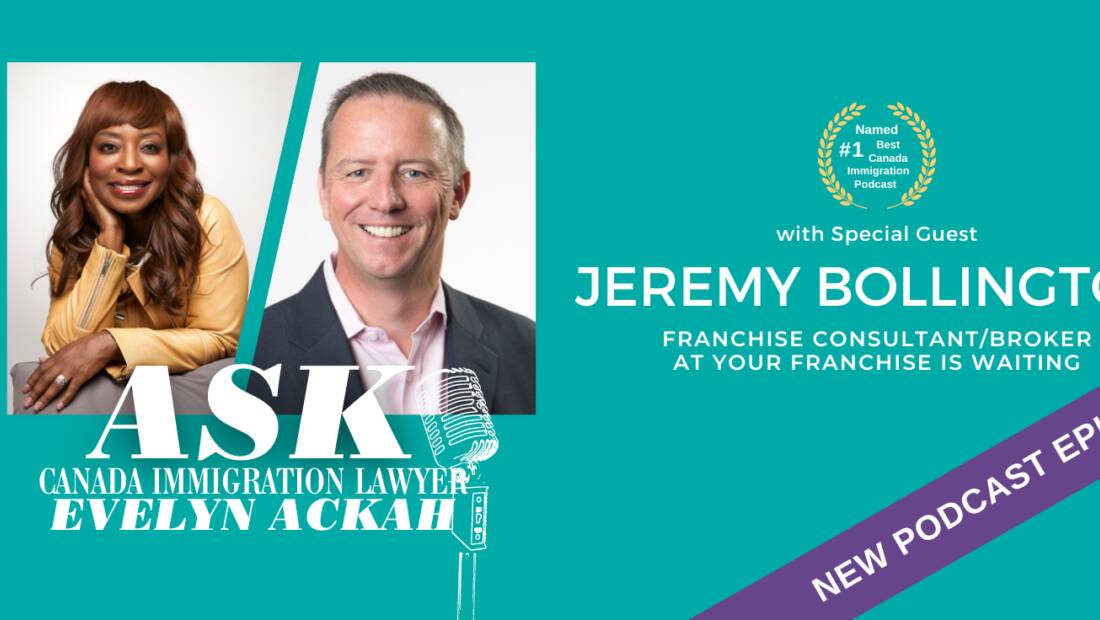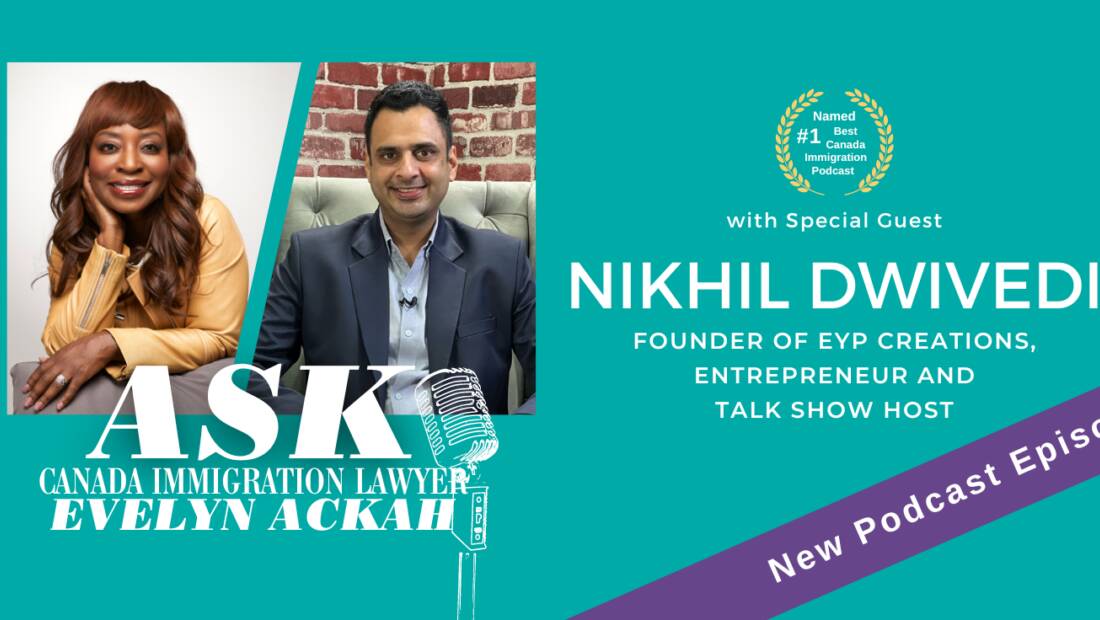Or listen on your favourite podcast app
Sara Forte is an employment, labour lawyer and workplace human rights lawyer and founder of Forte Law, based in Surrey, BC. Sara and her team advise employers, employees and unions on all aspects of labour & employment law and workplace human rights. Sara is also the founder of StandUP Teams™, which provides harassment training including bystander training and writes frequently on these topics as well as employment law and workplace human rights issues, and Not Your Average Law Job.
Sara and Evelyn discuss legal entrepreneurship plus
- why she chose a career in labour and employment law
- what led her to leave Big Law and open Forte Law
- how did her life and legal practice change during the past 18 months
- can an employment lawyer effectively represent both employers and employees?
- why Sara launched StandUP Teams
- how bystander training is a gamechanger for employee harassment training
- the additional challenges immigrants face when considering filing employment discrimination cases
- what is Not Your Average Law Job and what led her to open it during Covid?
About Evelyn Ackah
Evelyn Ackah is the Founder and Managing Lawyer at Ackah Business Immigration Law. We work with individuals and business owners from all over the world. For more information on immigration to Canada or the United States, Ask Evelyn Ackah at Ackah Business Immigration today at (403) 452‑9515 or email Evelyn directly at contact@ackahlaw.com.

Transcript
Evelyn Ackah:
Good day, this is Evelyn Ackah from Ask Evelyn Ackah Immigration Lawyer Podcast. And I have the pleasure today of introducing and welcoming my friend and colleague Sara Forte, who is the Founder and Managing Lawyer of Forte Law, and also many other businesses she'll tell you all about today. Welcome Sarah. It's good to have you.
Sara Forte:
Thanks, Evelyn. Thank you for inviting me.
Evelyn Ackah:
I really appreciate it. So Sara and I have gotten to know each other the last couple of years. We met at a workshop on writing and doing editorials for newspapers, and so she's got a real entrepreneurial spirit, just like I do. And we've been talking a lot over COVID as business owners. Her main office is in Surrey, British Columbia, and she also has a Calgary office that is also a new expansion in the midst of COVID.
Evelyn Ackah:
So, I'd love to ask you Sara, you're a mom and a lawyer and a wife and a business owner, and you're super active in your community. Now that Canada seems to be slowly getting back to normal, everybody but Alberta, what does your normal day look like still during these COVID times?
Sara Forte:
Well, I wouldn't say we're back to normal completely, but we're definitely getting that way. For me, my day starts at home obviously and first priority for me is getting my kids sorted out for school. I have three of them. And it used to be go upstairs, make sure you brush your teeth and that you're wearing socks and underwear. And now it's like, go upstairs, make sure you brush your teeth. You're wearing socks, underwear, and where's your mask? So it's one more thing on the list of things that can be forgotten, but once they get out the door, usually at that point I try to squeeze in a workout. That's usually how I schedule my day. And then I come to the office. My office is two kilometres from my house, which is one thing that makes wearing a lot of hats doable when you just have a short distance to travel between all of your various things.
Sara Forte:
And then my days at work are really varied. I am primarily working out of the office now. We built a new office over the pandemic, and luckily it is much bigger than we need. And so there's lots of room for people to space out and work safely together. So we're all kind of working at the office. And my days are a mix of firm management, helping clients solve their legal problems at work and putting the finishing touches on our new spaces is taken up a lot of time.
Evelyn Ackah:
That's so exciting. It is nice to be back in the office. I remember there was a time you were working from home too, like everybody else, we were trying to transition to this new normal. What brought you to employment law? You know my sister's also an employment lawyer and I always think it's interesting - what it is that attracts people to this area.
Sara Forte:
Well, for me, it's the people and work is so central to people's lives and it's a really meaningful way to help. I always think back to law school, I was doing interviews on-campus interviews with some big firms from Toronto because I went to Queen's Law and I was sitting in those little curtained-off booths, having this interview with these two lawyers. I don't remember what firm it was. And I put all over my materials I wanted to do labour and employment laws. So always what I wanted to do. And the one interviewer looks at the other interviewer and says, oh, labour and employment law? I think we have people that do that. And the other lawyers like, yeah, I do. I think they're on the 8th floor. And then the one looks at me and says, isn't that awfully pedestrian?
Sara Forte:
And I was like by pedestrian, do you mean it impacts everybody that walks down the street every day? Because if so, yes. And that's exactly why I want to do it. So that was really affirming for me. I didn't get an offer from that firm not surprisingly and obviously wouldn't have been a good fit for me, but the pedestrian nature is actually what I love about it. You're at a cocktail party... I guess we're not at cocktail parties anymore. What are we at? I'm at the sidelines of a soccer game, one of my kid's soccer games and we're talking about what we do and everyone can understand because they all know someone who's gone through some legal problems at work and needed some help.
Evelyn Ackah:
Yeah. It's definitely... It's an area that I always say, it's an area that you need your lawyer when you're hiring and when you're firing. It seems to be constant in terms of the support that people need, whether you're the employer or the employee.
Sara Forte:
I see a lot of similarities to immigration in that way, in the pedestrian nature and how central where your home is to your life every day. So I would imagine... I'm not turning the interview around on you, but are there parallels there with why you?
Evelyn Ackah:
I think there are parallels. And I think the reason we like it is because it's about people. I used to be a corporate lawyer and it was not my joy in life. And I needed to find that place where... I love learning about the companies and the businesses and everything, but it's the people that make me still be a happy lawyer at 22 years in. I literally don't think I could have survived five years doing corporate transactional work.
Evelyn Ackah:
So everybody has their thing and what their strengths are. And I think for you and I, we tend to be very social and outgoing and extroverted and deeply intuitive around people. And I think that's what makes you so good at your work because you understand that empathy. And I think as an immigrant, for me, that's what helps me with my empathy for new immigrants, whether they're executives or people who are just landing to start a new life as a caregiver. It's all the same to me. But I know you practice, Sara, big firms and did the big downtown thing for a while in Vancouver. And then what moved you to consider moving into your own business? What was the driving force there?
Sara Forte:
Well, one driving force was geography. So I think again, similar to what's driving a lot of your clients. So for me, geography is a sort of a simple way to put it, but it was more about aligning my work and my family and my giving that I'm doing all in the same community and really being present here as a good corporate citizen within the community. That was really central. And that has really paid back in spades in terms of finding synergies between all the various things that I'm doing.
Sara Forte:
And the other driver was just like you said, the entrepreneurial spirit. I had tried on lots of different business plans. I wanted to be a florist.
Evelyn Ackah:
Oh my god.
Sara Forte:
I was going to have a bookstore. I was really, really into that. We built a whole business plan around having a microbrewery. But then at the end of the day on each of those plans, I'd realized actually, I really liked books and I really like flowers and I really love theatre, but I actually don't know anything about them. And in the end, law is that was something I knew something about it. So what a thing to leverage your entrepreneurial spirit with something you know and it's something that's very, as far as a business goes and compared to those others, I don't have inventory, I don't have capital expenditures. A services business is definitely a lot more streamlined. I still might do one of those.
Evelyn Ackah:
I can see you doing all of them from what I know about you. So a lot of times for women and I shared this with... We're an all-female firm at our firm, and I know you have a couple of men lying around, but it's predominantly female. What was it about the experience of being a lawyer at a big firm or in the big firm world that was challenging for you? Because obviously personally, for me, I was adopting my kids and I needed some flexibility that I didn't see would work that well. I think when you own your own business, you're working all the time, but in different ways. So there is flexibility, but when you're not sleeping, you're working in some way, in your head with business, with clients, but at least you can do it in the terms or in your pyjamas or whatever. From home, from vacation, from another location, what was it that drove you to look at practicing law differently?
Sara Forte:
For me, I look at my career in phases and I had very good advice early on from actually the managing partner of the firm that I was at who was a woman. And she said to me, look at your career as a 40 year trajectory and know that you don't have to do everything right now. Something might be important to you, but if you try to do it all at the same time, you're inevitably going to fail. And so I really took that to heart and I still think about it all the time and I still have a lot of time left. So for me, the big firm environment worked really well when I was a young lawyer. I loved it. I got a lot out of it professionally, and personally. I used to go to all the concerts in the box. We lived downtown.
Evelyn Ackah:
Hockey games.
Sara Forte:
And I was able to enjoy the joys of the good parts of being in a big firm. I learned a lot from leading lawyers. And then it sort of came to a point after I'd had my second child where I was like, I'm not sure this is the best long-term fit for me. And so I popped my head up and just started having conversations with people who were doing things different.
Sara Forte:
And through that exploration of a bunch of coffees and lunches, I was able to see like, wow, I've got all of these paths available to me that I didn't even know existed because I'd only ever worked in a big firm. So that was kind of my path. And then it was another six years that I ended up going and working on a contract basis for a smaller firm. And then it was another six years there where I sort of went through the same exploration of like, okay, this isn't a good fit for me going forward anymore. It's been great. What might I do next? And really looking at a real breadth of options before settling on my next step.
Evelyn Ackah:
How long have you had Forte Law?
Sara Forte:
It'll be five years on November 1st. So we're coming up to a big day, which is exciting.
Evelyn Ackah:
It's so great to see how well you grown and the learning, the challenges and the joys and the privileges of running your own business really.
Sara Forte:
Well, and I have to say given my six year and six year increments, I was thinking, gosh, what's going to happen at six years? I've only got one year left, but what I do know is this experience of entering the world of business and entrepreneurship, there's so many ways you can grow. And so many variations of what you're doing that I don't think this is going to have the same six year expiry date as some of the other things that I've done.
Evelyn Ackah:
Let's hope not. Not your marriage has lasted.
Sara Forte:
I think we're safe. Yeah, no, this is the only career.
Evelyn Ackah:
Not everything is your career. So listen, I saw on your website that you also founded StandUP Teams. In terms of that, can you tell me what that bystander project is about? Because a lot of people don't know what that means if you're not in the employment law world. What are you teaching and training in addition to practicing labour employment? Yeah.
Sara Forte:
This is an example of ways that you can develop new things to keep your practice interesting when you have your own firm. Can decide to invest in whatever you want. For me working in employment law and workplace human rights since 2004 and even before law school, I worked in HR. I'd seen so much harm caused by harassment and discrimination at work. And by the time files were getting to me and clients were getting to me as a lawyer, the harm is done. We can negotiate financial compensation, maybe we can put into place new processes, but that person has been harmed and we can never undo that. And so I was really interested in how to make proactive change as someone who's worked for many years in this area. And harassment training is something that's been around for a long time.
Sara Forte:
That's news to anyone. And in 2016, the Equal Employment Opportunity Commission in the US did a study, a longitudinal study because in many states it's actually been mandatory for decades to do harassment training. They found that there was no evidence that harassment training was effective. None.
Evelyn Ackah:
Wow.
Sara Forte:
So that was a big bombshell in the industry. And a lot of academics went to work to figure out what is it about it that's not working and how can we create something that's more effective and better for people? And I always give the example of a friend. I have this male friend who works for a big company. He's white, he is well educated, he's a manager and he had harassment training at work. So I always get very excited to hear like, oh, how did it go? What did you learn? And he's like, it's two hours of my life I'm never going to get back.
Sara Forte:
And I was like, well, how could you say that? Because it's so important and it's so interesting, but it is a very common review. And he said, because I'm never going to harass anybody, which I believe, and I'm never going to be harassed, which someone in his position of his gender and his privilege, that's probably right. And so it was irrelevant. There was nothing in that training for him. It was all about you shouldn't harass people and if you're harassed, you should say something. So that's where bystander training comes in. So bystander training trains the entire workforce on something that is relevant to them because we are all going to see disrespect and harassment and discrimination at work, even if we're not the perpetrator or the victim, we all see it.
Sara Forte:
And we can all think of an example of a time when we've seen something that wasn't right. And so bystander training, first of all, gives bystanders the understanding of what is bullying and harassment? Because number one, you see it and you're like, ah, that seems not okay. Maybe okay, well let's give people the measuring stick to say what's okay and what's not so they know. And then the second part is letting them practice the skills to speak up because we are all in Canada, for sure, raised in this culture of it's none of my business. I don't want to interfere. I don't want to embarrass anybody. I don't want to make assumptions. And so it's two parts. It's knowing what's okay and what's not. And then having the skills to speak up.
Evelyn Ackah:
Wow.
Sara Forte:
So with StandUP Teams, we create customized training for organizations who want to support all of their team in creating a culture of respect, so it's very exciting.
Evelyn Ackah:
That sounds fabulous.
Sara Forte:
I'm really excited about it.
Evelyn Ackah:
I think it's fabulous. I think it makes sense because a lot of times people say, I didn't know what to say in the moment it happened and I didn't know what to say. And sometimes this person is a person of colour. Sometimes the obligation is on you to say the thing or not, but then it's silent. And so I think it's wonderful that you're empowering everybody to understand when to call out some things or to be able to go and have someone else's back in a supportive way to use your voice or your position to at least be heard and I think that's fabulous. How long have you been doing this?
Sara Forte:
Well, we've been doing it for a few years now. I sort of branded it and rolled it out officially and you can check out the website at standupteams.ca. I did that about a year ago and we sort of created... I invested some resources into it again because I can do that and because I think it's so important. And I think the point you made is really key in that the victims are often actually in the worst position to be the ones to stand up and say something and so it's really important, especially now that we're all becoming more aware of racism and discrimination against indigenous people in particular over the last few years have really come to the forefront in terms of public recognition and acknowledgement. And so people want to know how to be an ally and how to support their friends at work. And this is one way to do it. So it's fun to be part of something that's making good in the world.
Evelyn Ackah:
I think you do a lot of good in the world. So Sara, one thing that's interesting about your firm is you do the employment side for employers and for employees. Tell me how you made that decision because I know sometimes I've had to refer files out that are employment-related. They'll say, oh, we only work for corporations or employers, or we only work for employees. And I know there are firms that do both. How did that kind of happen? And do you feel like sometimes there are inherent conflicts or how do you feel about that and why did you feel you wanted to provide support to both of them?
Sara Forte:
I think that's a really interesting question that comes from an inherent understanding of the relationship as adversarial, which is really funny if you think of it, Evelyn, as an employer. Are you an adversary to people who work for you? Are you on a different side? No. Employment is a relationship. And I think when we pull back and we think about that at its core, picking a side is really inconsistent with a relationship focus of employment law, which is where I truly believe it is. And it lives. It's been a huge asset for us. I always give an example, which is a true story about one day I had a client come in who was pregnant. She came in the morning, she was pregnant, and she was being told by her employer that they were reorganizing and she was being demoted as part of that reorganization.
Sara Forte:
She wanted to understand what her rates were, what was fair and reasonable and what the rules are. And so I sat with her and we talked about that and we made a plan and she was able to carry on. That afternoon, I had a different company, not the same company, because that would be a conflict, but a different company came in and said, you know what, we're doing a reorganization. And we have an employee who is pregnant and she is going to unfortunately be demoted as part of this reorganization. We want to know what our rights are, what our obligations are. And we need help making a plan of how to do this in a fair and reasonable way. There's more overlap in those two scenarios than differences, but it is so valuable. I find lawyers who just consistently act for one party in the implement relationship, you can't help but getting a little jaded against the other side.
Evelyn Ackah:
I've seen that.
Sara Forte:
If you only act for employees, companies are cheap and mean and out to screw you over or whatever, if you only act for employers who are like employees are malingering and trying to cheat the system and untrustworthy, whatever it is because you see the other side behaving badly file after file after file. That's where we come in.
Evelyn Ackah:
That's all you see. You're right.
Sara Forte:
And I think with when representing both, not only do I have a really good understanding of what the motivations and circumstances for the different parties to the relationship are, but you also just keep the humanity to it. And my view is most parties to employment relationships and people in the world are trying to do the right thing. Sometimes they're going horribly wrong, don't get me wrong. They could be bad stuff and sometimes they're not really trying to do the right thing at all, but in most cases, people are human and trying to do the right thing. And I think being mindful of that makes practice more fun, less stressful and I think it informs strategy for my clients so much better than someone who's only ever looking at things one way.
Evelyn Ackah:
Oh, I love that answer. That is a Sara Forte answer. I love it because it really, really encompasses who you are. And I love that you were able to describe it in that way because I don't think I've ever heard an employment lawyer explain that to me in that way. That makes perfect sense. Why wouldn't you do both? For us at immigration, we act for individuals and we act for corporations, but when I was at a big firm and I think this is where it was coming from, we mostly active for corporations at the big, big, big firms because most individuals may not have been able to afford us.
Evelyn Ackah:
So sometimes it's a matter of accessibility. When you are in your work with employers, have you seen cases where you've seen maybe foreign workers? I guess this is the challenge when you come, they might've been educated elsewhere, they might speak a different original language. Have you seen more discrimination or any experiences of that or the challenges of immigrants trying to establish themselves again in the employment world after being senior somewhere else in the world and then you have to start over again. Have you had any exposure to any of that?
Sara Forte:
I think that's just a fact, Evelyn. Anyone who would say that doesn't exist probably hasn't been out enough in the world. Prejudice, discrimination against foreign qualifications, against foreign work experience, that just is in the world. And I am sorry for that as someone who is Canadian born and has the unearned privilege of not having to face that myself and I certainly have seen that with my clients. I can give you one example. And of course I can only say so much because of confidentiality, but I had one client who is a highly trained engineer. Had lived in Canada for some time, but some of his training was foreign, but he had multiple degrees and he was applying for an internal promotion and was very well qualified for it.
Sara Forte:
So goes through the process, comes out the other end and when you're an external applicant, you often don't see who gets the jo, but when you're an internal applicant, of course you see. So he sees that the person who got the job was a Canadian born Caucasian who didn't even meet the minimum educational criteria for the position. And he bravely started a human rights complaint. He did it all by himself and eventually, we ended up working together on it and there's some published decisions, which is why I can speak about it a little bit and he was able to pursue that as racism. And in NBC section 13 of the human rights code is what prohibits discrimination in employment based on the protected grounds and the protected grounds include race. They include ethnicity. They include place of origin.
Evelyn Ackah:
Place of origin. I think that person was clearly very brave. That's the challenge. People think we've all experienced different things, whether it's sexism or racism or other means of discrimination, no matter what, no matter who you are. And I feel like most people would just move on or they would look for another opportunity. I have friends and family and other people in my life that I know have encountered those walls or barriers. And sometimes it's just too hard to consider what the impact is of pursuing a complaint of any sort.
Evelyn Ackah:
So, obviously very brave to do because you know there's a piece of your life that is going to be gone and you may lose your employment of course, or the relationship or the whatever, because you were pursuing it. How do you advise people how to make the decision of doing something like that versus let's just find something else and move on? Where your battles are. Those are the challenges.
Sara Forte:
Those are the challenges. And I think for newcomers to Canada, especially, you know more about this than I do, but especially depending on their immigration status and what the terms are, the loss of employment and the consequences of that is so different. It's not like you can cross the street and find another job or stay in your home here and remain unemployed. That's not always an option. So the stakes are different for every person. And so I always encourage people to reach out for advice. I have people who will say, well, I don't want to talk to a lawyer because I'm not willing to take it all away or I don't want to sue and well, that's not why you talk to a lawyer. And I have people come in on all ends.
Sara Forte:
So I have people coming in, that are like, I'm here because I want to sue. And then I have people that are like, I'm here, but I don't really want to do anything. And what I do with all my clients is talk about their goals, what their personal goals are. And as lawyers, as you know, we have the luxury of only looking out for one person best interests. And so I do have clients come in and I have so much admiration from them for bringing something forward because it's important to the world, but I always say, you know what? My job in this relationship is not to look out for the world. My job is to look out for you and what's going to work for you. And so we always identify what their goals are. We take a real hard look at what their fears are and whether they're well-founded.
Sara Forte:
And sometimes they are and those practical points and the the human costs of pursuing things you really do need to look at and go in eyes wide open to. And in every consultation meeting I go through all the options and one of the options is always do nothing. And I have full respect for clients who decide to take that path. I think especially people who have experienced harassment or discrimination, you have to choose and it is your right to choose whether you want to do something about this or not. And sometimes it's not the right time for you and that's okay. And sometimes it is, and that's okay too. And so I think leaving space for autonomy, because I think people often come in feeling quite powerless and making sure, at least in their relationship with me, and their decisions moving forward, they are in the position of power to choose. And my job is just to guide them through that and give them the information they need to be in the driver's seat.
Evelyn Ackah:
That is so great, Sara. Oh my goodness. One last couple of questions. Tell me about Not Your Average Law Job. That is so cool. Again, another business, not the beer business, but where did that come from? Because I know you and all of a sudden you had another thing and I was like, what happened here? It was cool.
Sara Forte:
Yes. Yeah. So, I feel like we keep circling back, which I guess is the sign of a good conversation, but it's the things you can do when you're self-employed is you can take on whatever passion projects light your fire and Not Your Average Law Job was something I thought about many years ago as I was telling you about those transition points in my career where I was going out and meeting people and finding out that there's all these awesome things you can do as a lawyer that I had no idea even existed. And at the time I was searching on the internet and just not finding information about that. Sort of life after law, there was a body of information for people who are going to leave the legal profession and what else they could do and not be a lawyer, or there was sort of the traditional, you can work at a big firm, you can go in house, you can work for government or you can leave law.
Sara Forte:
Those are sort of like the boxes. So I really wanted to create a resource for lawyers who were unhappy in their jobs to keep them, or at least give them some options because not everyone as you've said has the outgoing personality that you and I have and the emotional ability to reach out. And even just the financial stability to do that because people often feel like it's risky for me to go and talk to people about other jobs because what if someone finds out and then I lose this job? I can't afford to do that.
Sara Forte:
So that was the point of Not Your Average Law Job. I just wanted to have sort of open resource where people could hear about other ways to practice, get inspired, have it paired with job postings and resources so you could actually kind of have the full experience. Get inspired, do some reading and then find a new job that might fit better for you all in one-stop shop. So that's Not Your Average Law Job.
Evelyn Ackah:
Wow.
Sara Forte:
Got a website too. notaveragelaw.com and yeah, we've really been building. We just launched in June and it's been building really quickly with interest. So that piece is a dream come true for me. I've dreamed about it for a long time and now it's happening.
Evelyn Ackah:
I love it. I love it. I love how you've used your time during COVID. You've just launched basically two different things in addition to growing your business and in addition to growing the Calgary office. So, you're living the dream. You're living the dream. I always feel like it.
Sara Forte:
Well, I'm not getting enough sleep that's for sure. But I'm also having a lot of fun and I'm grateful to be at a position in my life where I can do these things, which is great. And having wonderful friends and supporters like you always boise me up to go get them on whatever the next dream is. Before you ask, I don't know what it is yet, but I feel like there's another dream coming.
Evelyn Ackah:
Because I need to do it. I need to just take it from you and add to my list because you clearly have a lot going on Sara. Oh, thank you so much for sharing your journey with me and our podcast and our listeners and viewers. And honestly, it's been so fast and furious. It's already almost over, but I want to just thank you so much for your time. And if anyone wants to talk to Sara at Forte Law for an employment issue, labor issue or the other businesses she has, so the other one is StandUP Teams and then the most recent one is Not your Average Law Job, which I've seen online and it looks fabulous and I've even signed up for it. Not that I'm going anywhere, but it's a wonderful place to look for different kinds of lawyers or people who think differently who will be disruptors, I think to the practice of law. So I'm always looking for great people. So thank you so much for participating today.
Sara Forte:
Well, and I think you have used Not Your Average Law Job as an employer who offers not average law jobs. So really appreciate that. It's been a pleasure talking to you, Evelyn, and I'm happy to come back anytime.
Evelyn Ackah:
Awesome. I look forward to seeing you in Calgary. Thank you. Okay.

